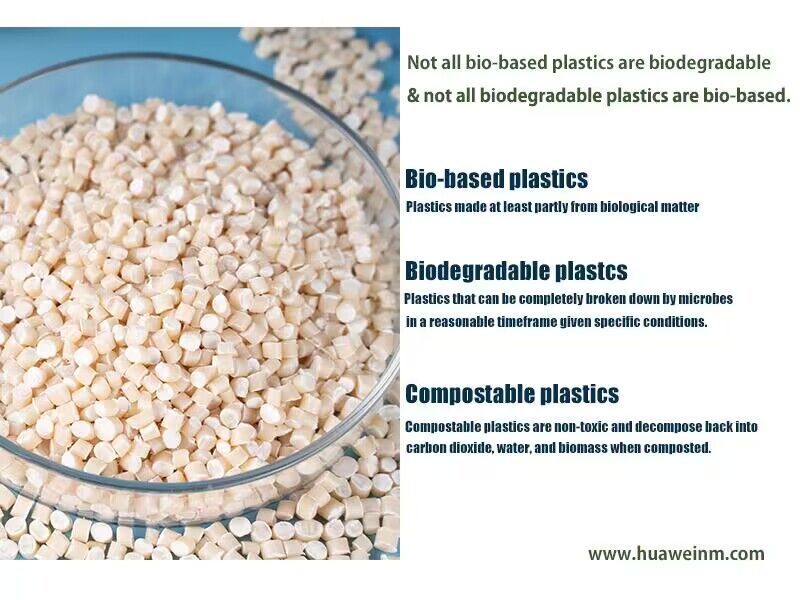
Bio-based – These are plastics that are made using polymers derived from plant-based sources such as starch, cellulose, or lignin. Bio-based plastics can be engineered to be biodegradable, but are not necessarily.
Bio-based products are wholly or partly derived from materials of biological origin, excluding materials embedded in geological formations and/or fossilized. In industrial processes, enzymes are used in the production of chemical building blocks, detergents, pulp and paper, textiles, etc.
The terms bio-based plastics and biodegradable plastics are sometimes used interchangeably, but they are not the same. Bio-based plastics are derived from non-petroleum biological resources. Biodegradable plastics degrade via exposure to naturally occurring microbes and may be bio-based or made from petroleum.
Biodegradable – These are plastics that can be broken down into water, biomass, and gases such as carbon dioxide and methane. Biodegradability depends on environmental conditions such as temperature, humidity, microorganisms present, and oxygen.
Biodegradable simply means something that over time, is broken down into its natural components by biological organisms like bacteria and fungi. There is no limitation to how long this takes, for something to be declared biodegradable. It also doesn’t cover what it breaks down into, or under what circumstances. Some things are indeed biodegradable, but into harmful components.
Some examples of biodegradable (but not necessarily compostable) things: pretty much everything!
Compostable – Compostable plastics are a subset of biodegradable plastics that break down into water, biomass, and gases under composting conditions. Industrial composting conditions are the most optimal: temperatures of 55-70 degrees C, high humidity, and oxygen.
Compostable materials are materials that have been certified to break down completely into non-toxic components (water, carbon dioxide, and biomass) that will not harm the environment, given the right condition
Compostable, by contrast, means something that can be broken down, by natural processes, into non-toxic (usually nutritious) components, within a certain period of time. To truly know if something is compostable, it needs to be tested and certified. The problem is that some certified compostable substances are only certified compostable under certain circumstances. That’s why there are lots of certified compostable packets and containers out there, yet they are still sticking out of your compost heap, looking as good as the day they went in.
Some examples of home compostable things: food waste, unlined cardboard, newspaper
If biodegradable refers to the breakdown of something into its natural components by biological organisms like bacteria and fungi, degradable means that no living things are required to break it down- the key part of the word missing there is 'bio'.
Most plastic is made from natural gas or oil (which is first processed into ethylene oxide). Plastic is degradable because over time the bonds in the polymers fall apart and it 'degrades' into microplastics. We all know by now the devastating impacts that this has on waterways and animals.
